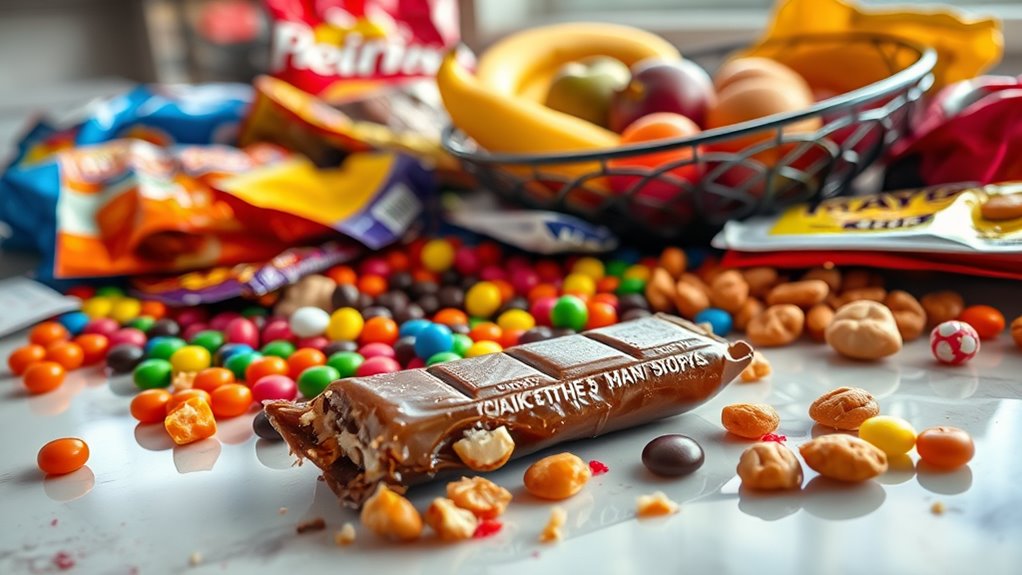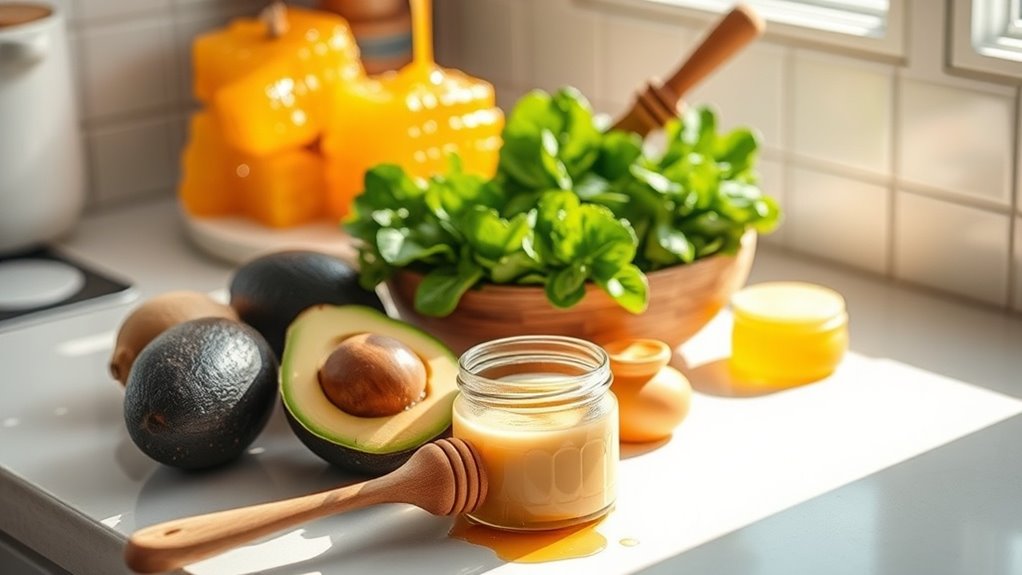The Snack Habit That Could Be Sabotaging Your Wellness Goals
Your snacking habits might be undermining your wellness goals more than you realize. Unconscious eating often leads to unnecessary calorie consumption, especially when emotions like stress or boredom come into play. It’s easy to lose track of what and when you eat. Understanding these patterns can bring clarity. As you continue, consider how making small changes can impact your choices and support your overall health. What if there’s a better way to snack?
Understanding Your Snacking Patterns
Understanding your snacking patterns can reveal triggers that lead to wellness sabotage. Emotions, boredom, or even environmental cues often shape your decisions. Recognizing these influences helps you make healthier choices, turning snacks into nourishing options instead of mindless habits that hinder your wellness journey. Be aware of the hidden emotional triggers that might lead to unnecessary snacking habits. Stay mindful!
The Impact of Mindless Eating
Mindless eating can trigger emotional eating, leading you to snack when you’re stressed or bored rather than hungry. This lack of awareness not only complicates portion control but also makes it hard to recognize when you’ve had enough. By tuning into your body’s signals, you can start to differentiate between true hunger and emotional cravings, helping to foster a healthier relationship with food.
Triggering Emotional Eating
Although you mightn’t always realize it, emotional eating is often triggered by mindless snacking, where eating becomes an automatic response rather than a conscious choice.
Consider these factors that might influence your habits:
- Stress or anxiety
- Boredom or loneliness
- Environmental cues (like commercials)
- Social situations
Awareness of these triggers can help you break the cycle and regain control over your eating habits.
Portion Control Challenges
Emotional eating often leads to portion control challenges that can sabotage your wellness goals.
When you snack mindlessly, you’re more likely to consume larger servings without being aware. Research shows that visual cues, like larger plates, can trick your brain into eating more.
To regain control, consider using smaller bowls or pre-portioned snacks to help you stick to healthier serving sizes.
Choosing Nutrient-Dense Snacks
When you’re snacking, choosing nutrient-dense options is crucial for your overall wellness.
These snacks offer vitamins, minerals, and energy without excess calories, helping you stay on track with your health goals. Incorporating foods for immune boosting can also provide additional benefits to help support your body’s defenses.
Importance of Nutrient Density
Choosing nutrient-dense snacks isn’t just a smarter decision for your overall health; it can also keep your energy levels stable throughout the day.
Here are some key benefits of these snacks:
- Provides essential vitamins and minerals
- Helps maintain satiety
- Supports muscle recovery
- Boosts mental clarity
Healthy Snack Options
Healthy snacking doesn’t have to be bland or boring; in fact, there are countless nutrient-dense options that can satisfy your cravings while fueling your body.
Consider snacks like Greek yogurt with berries, raw nuts, or hummus with veggies.
These choices provide essential vitamins, minerals, and healthy fats, keeping you energized and focused throughout the day, supporting your wellness goals effortlessly.
Balancing Macronutrients Wisely
Crafting the perfect snack can significantly influence your overall wellness journey. To balance macronutrients wisely, consider these nutrient-dense options:
- Greek yogurt with berries
- Hummus paired with sliced veggies
- Almonds mixed with dried fruit
- Quinoa salad with chickpeas
These choices provide essential proteins, healthy fats, and complex carbohydrates, keeping you satisfied while supporting your health goals.
Make mindful snacking part of your routine!
Timing Your Snacks Wisely
While it may be tempting to grab a snack at any moment, the timing of your snacks plays a crucial role in achieving your wellness goals. Snacking at strategic times can help maintain energy levels, regulate hunger, and even support metabolic health. Here’s a quick guide to effective snacking:
| Time | Suggested Snack | Benefit |
|---|---|---|
| Morning | Greek yogurt | Boosts protein intake |
| Afternoon | Apple with almond butter | Sustains energy |
| Pre-workout | Banana | Provides quick energy |
| Post-workout | Protein shake | Aids in recovery |
Incorporating healthy food choices into your snacking routine can further enhance your overall well-being.
The Role of Portion Control
Portion control is a vital aspect of successful snacking that can significantly impact your wellness goals.
By managing your portions, you can enjoy your favorite snacks without overindulging.
Consider these strategies:
- Use smaller plates or bowls.
- Pre-pack snacks in serving sizes.
- Measure out portions instead of eating straight from the bag.
- Stay mindful as you snack, focusing on taste.
Incorporating mindful eating habits into your daily routine can further enhance your relationship with food.
Building a Sustainable Snacking Strategy
To achieve lasting wellness goals, it’s essential to build a sustainable snacking strategy that aligns with your lifestyle and nutritional needs. Focus on whole, nutrient-dense foods and plan your snacks to avoid impulsive choices. Here’s a simple guide:
| Snack Type | Nutritional Value | Portion Control |
|---|---|---|
| Veggies | High in fiber | 1 cup |
| Nuts | Healthy fats | 1 oz |
| Greek yogurt | Protein-rich | 1 serving |
| Fresh fruit | Antioxidants | 1 medium |
In addition to planning, aim to create balanced meals by incorporating a variety of food groups to ensure you’re meeting your nutritional needs.




